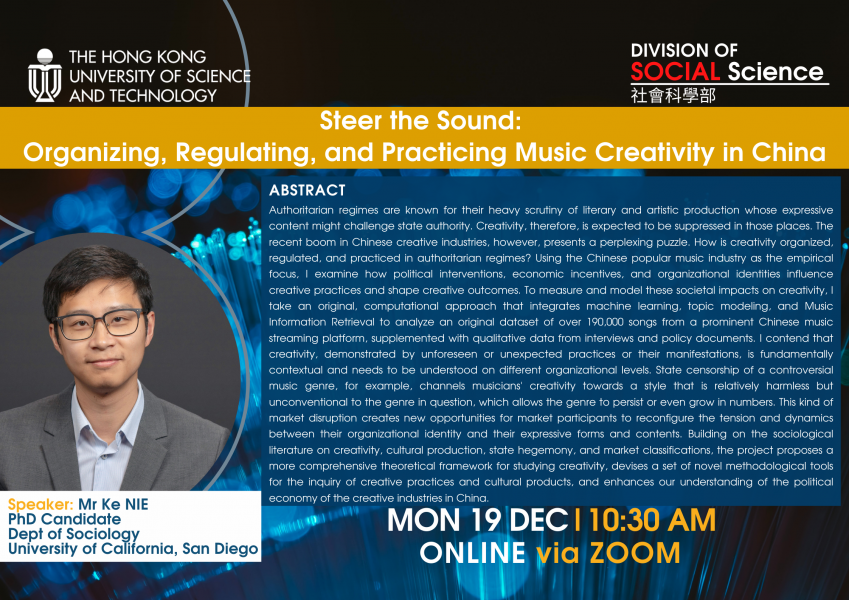Authoritarian regimes are known for their heavy scrutiny of literary and artistic production whose expressive content might challenge state authority. Creativity, therefore, is expected to be suppressed in those places. The recent boom in Chinese creative industries, however, presents a perplexing puzzle. How is creativity organized, regulated, and practiced in authoritarian regimes? Using the Chinese popular music industry as the empirical focus, I examine how political interventions, economic incentives, and organizational identities influence creative practices and shape creative outcomes. To measure and model these societal impacts on creativity, I take an original, computational approach that integrates machine learning, topic modeling, and Music Information Retrieval to analyze an original dataset of over 190,000 songs from a prominent Chinese music streaming platform, supplemented with qualitative data from interviews and policy documents. I contend that creativity, demonstrated by unforeseen or unexpected practices or their manifestations, is fundamentally contextual and needs to be understood on different organizational levels. State censorship of a controversial music genre, for example, channels musicians' creativity towards a style that is relatively harmless but unconventional to the genre in question, which allows the genre to persist or even grow in numbers. This kind of market disruption creates new opportunities for market participants to reconfigure the tension and dynamics between their organizational identity and their expressive forms and contents. Building on the sociological literature on creativity, cultural production, state hegemony, and market classifications, the project proposes a more comprehensive theoretical framework for studying creativity, devises a set of novel methodological tools for the inquiry of creative practices and cultural products, and enhances our understanding of the political economy of the creative industries in China.
Ke Nie is a Doctoral Candidate in Sociology (minor in Computational Social Science) at the University of California, San Diego. He is an economic and organizational sociologist who uses and advances computational methods to study the political economy of creativity. His works appear in Poetics, Chinese Sociological Review, and ISMIR Conference Proceedings, and his research is sponsored by multiple grants and fellowships including the American Sociological Association Doctoral Dissertation Research Improvement Grant.
Remarks
- ZOOM link will be sent via email, for HKUST members ONLY
- Please use your HKUST ITSC account to join the zoom meeting.
- This meeting is being recorded. By joining, you are giving consent for this meeting to be recorded.

